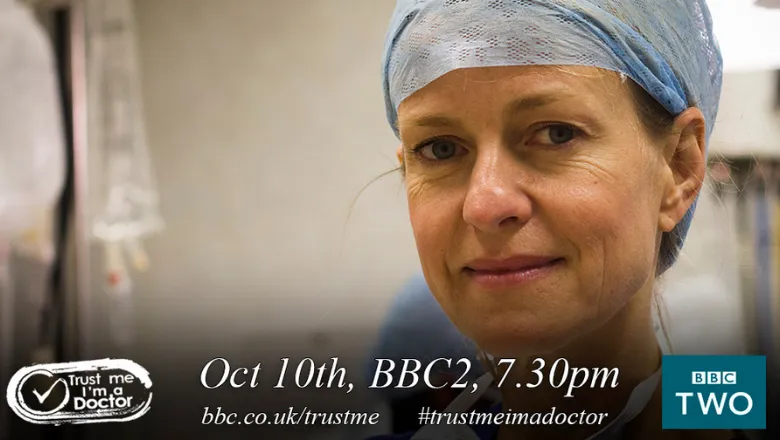09 October 2018
How a pioneering software system is transforming brain surgery
An research collaboration between University College London, King’s College London and University College London Hospitals NHS Foundation Trust will appear on BBC’s Trust Me I’m a Doctor.

An innovative research collaboration between University College London, King’s College London and University College London Hospitals NHS Foundation Trust (UCLH) will appear on BBC’s Trust Me I’m a Doctor tonight, featuring interviews with Professor John Duncan (the National Hospital for Neurology and Neurosurgery, part of UCLH) and Professor Sebastien Ourselin (King's School of Biomedical Engineering & Imaging Sciences).
Presented by Gabriel Weston, the episode will explore a novel software platform called EpiNav™, designed to support curative surgical resection for patients with focal epilepsy. In the latest development of this work, the software interacts with a robot micro-guided system (produced by Medtronic) which uses sensor guidance to manoeuvre surgical tools into the exact positions required during surgery. This element is currently undergoing a randomised control trial at the National Hospital for Neurology and Neurosurgery.
The segment follows the story of Alistair, who underwent a surgical resection after developing epilepsy as a child. In order to make sure he would be suitable for the procedure Alistair first had a series of electrodes placed in his brain to measure electrical activity. After monitoring this for a number of days in a controlled hospital environment, the clinical and technical specialists were able to pin-point the region of the brain responsible for his seizures which was removed in a second operation.
Both the diagnostic and interventional stage of the procedure are planned extremely carefully, making sure the risk of affecting an area of the brain responsible for key motor functions will not be affected – in some cases meaning patients are just not viable for this treatment. The EpiNav™ system has been developed to support every stage of this process by creating intricate 3D models of the patient’s brain which can be used as a planning and guidance tool.
Up to 30% of patients with focal epilepsy do not respond to drugs and it is hoped these technical innovations will help more patients benefit from a potentially life changing treatment.
This project has been developed with funding from Wellcome, the Department of Health and the NIHR UCL/UCLH Biomedical Research Centre.
Trust me I’m a Doctor, BBC2, 19.30
